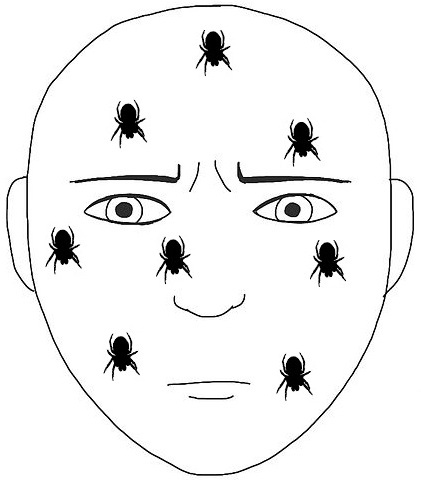
Excited catatonia : excessive, purposeless movement in both the upper and lower limbs, restlessness, and impulsivity.Retarded catatonia : immobility, posturing, negativism (resisting external commands), staring, mutism.Drug adverse effects (e.g., antipsychotics).Catatonia associated with medical disorders.Catatonia associated with mental disorders.Definition: a behavioral syndrome characterized by abnormal movements and reactivity to the environment.Hallucinations are more common than delusions at younger ages, but must be clearly differentiated from age-appropriate imaginative activity. Prognosis: typically more severe than adult-onset schizophrenia with worse outcomes the earlier the onset of symptoms.Catatonia is less common than in adult-onset schizophrenia.In young children, hallucinations should be differentiated from age-appropriate imaginative activity (e.g., engaging with imaginary friends or roleplay).The presence of delusions and the complexity of delusions and hallucinations increase with age.Hallucinations (mainly auditory) occur more commonly than delusions.Neurodevelopmental disorders or their features during childhood.Poor social, academic, or occupational function.History preceding the onset of psychosis.Diagnostic criteria are identical to those used for adults (see “Diagnostics” below).Definition: onset of schizophrenia Metabolic abnormalities: hypertension, diabetes, hyperlipidemia.Neurological abnormalities: sensory disturbances and impaired coordination.Apathy : lack of emotion or concern, especially with regard to matters that are normally considered important.Anhedonia : inability to feel pleasure from activities that were formerly pleasurable or from any new positive stimuli.Alogia: impaired thinking that manifests with reduced speech output or poverty of speech (e.g., always replying to questions with one-word answers).Avolition: reduced or absent ability to initiate purposeful activities.Flat affect: reduced or absent emotional expression.Catatonia (See “Subtypes and variants” below.).Grossly disorganized behavior : an abnormal behavior characterized by inadequate goal-directed activity (e.g., purposeless movements) and bizarre emotional responses (e.g., smiling or laughing when inappropriate).Disorganized thought or disorganized speech: e.g., loose associations, word salad, tangential speech.Delusions, e.g., grandiosity, ideas of reference, paranoia, persecutory delusions.Hallucinations and/or illusions ( auditory hallucinations are most common ).Positive symptoms of schizophrenia Psychosis This can include listening to music or watching TV.Schizophrenia typically manifests with a prodrome of negative symptoms (e.g., social withdrawal) and psychosis that precedes the positive psychotic symptoms (e.g., hallucinations and bizarre delusions). Help the person find ways to handle the hallucinations.

Involving the person in other activities may help. Suggest that the person tell the voices to go away.

Talk with the person about the experience.Īsk whether there is anything you can do to help.The person needs to feel that it's okay to talk to you about his or her symptoms.



 0 kommentar(er)
0 kommentar(er)
